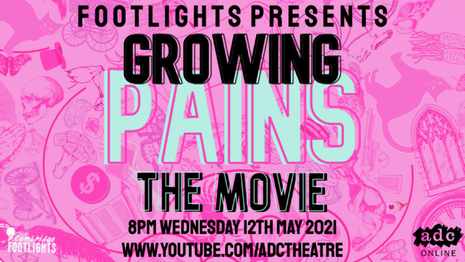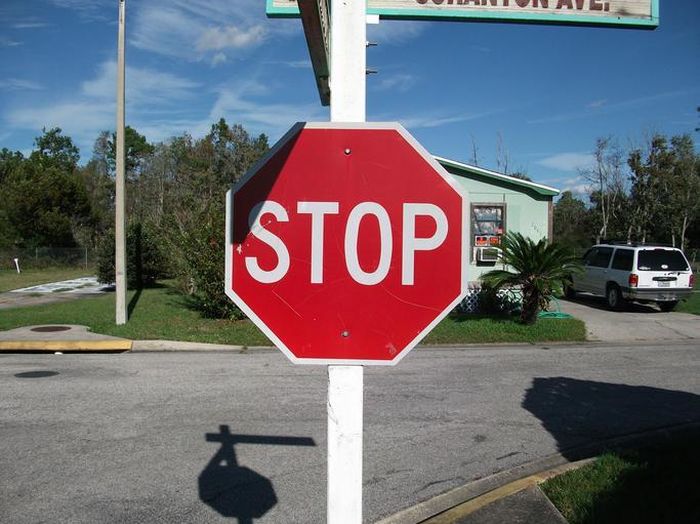‘I was just like, this is horrifically good’: Interview with the cast and crew of Footlights presents: Growing Pains
Fergal Jeffreys and Stanley Lawson talk to the cast and crew of Growing Pains about their new show, how filming comedy compares with working on the stage, and the future of the Footlights.

Wednesday 12th May sees the premier of the Footlights new film: Growing Pains. Taking the theme of transition, this sketch comedy movie has faced many challenges over its production. Navigating various lockdowns, the comedy has itself undergone transition: from stage show, to radio, and eventually to a movie. We sat down with its director Maria Pointer and three of its writer-performers: Emily Symington, Chakira Alin and Robbie Boyd.
Looking at the variety of sketches on display in the movie – talking wisdom teeth, a date between a medieval baron and an Instagram influencer – it’s easy to be impressed by the creativity of its writers. Emily describes how they arrived at the title ‘Growing Pains’: “We wanted to pitch something that could be interpreted quite broadly, and growing pains incorporated everything from a literal interpretation of growth to intergenerational miscommunication and trans-historical stuff.”
“We were initially working on the premise that it would be live. I remember when we appointed Maria to be director, we had lots of talks about the set. We were going to do it almost as a market stall with lots of fruit and vegetables, but this obviously fell through when we found out we had to do it online. So from there we started planning a radio show, working on audio comedy rather than visual comedy, which was a big challenge. Finally, we’ve done this film, so we’ve been able to adapt some of the sketches from before, as well as adding new ones for the film.”
On the creative process:
Writing and rehearsing over zoom has been a defining feature of all kinds of theatre over the past year. Chakira acknowledged the disadvantages of the online creative process: “Maybe it was slightly less organic but because of Maria it all went smoothly. She organised regular writing sessions where we were able to brainstorm with each other. Maybe the zoom format added a little timidness that there wouldn’t be in person, but this lifted as soon as we started filming.”
Maria points out that this was the first time many of the cast had actually met: “Some of us had done shows together before but meeting people for the first time was like, “You’re taller than I thought.” The thing about comedy is that, unless it’s a play, you don’t want to over-rehearse it because you don’t want the jokes to lose their impact. It was quite nice on filming day, when people were performing for the first time in person, we were able to add new direction, new lines. This meant it was fresh, which was especially important because it’s a show we’ve been working on for five months.”
“Some of us had done shows together before but meeting people for the first time it was like “you’re taller than I thought””
Indeed, the film format offered new methods for the cast and crew. Emily said: “It definitely made me more creative, how we could use TikTok to edit film.” Chakira discussed how there’s a lot more attention to detail when filming sketch comedy: “Maria would say, “Let’s cut away,” and that would be a joke in itself. Costume as well; we brought sacks of clothes and would get changed in a field in the five minutes between sketches. There was a lot more we could play with than if it had been a theatre show.”
Many of the cast members were used to performing comedy on stage and making the jump to screen gave them new challenges. Chakira felt herself putting more emphasis on acting than she usually does on stage: “It’s a film. It’s going to be immortalised. Like I found myself thinking, “What’s my motivation?” – like I’m Daniel Day-Lewis. There’s so many different ways you can perform it. Robbie agrees: “You’re not going to put something in a movie that has any kind of mistake in it. Inevitably on-stage mistakes happen in every show. It’s fine; it’s still funny. With the opportunity to re-film and re-edit you’re not going to feel comfortable putting in something with a little mistake.”
“Like I found myself thinking, “What’s my motivation?” – like I’m Daniel Day-Lewis”
Maria describes how filming comedy shifted the emphasis from concept to character: “In sketch shows I’ve been in, the concept rather than the character is the focus. This time we have so many funny characters. We had a great day filming a dating show sketch written by Chakira about gentrifies: a load of indie boys who are actually from Harrow. Last Friday they all came in beanies and bucket hats and I was just like, this is horrifically good. They’re all really good character actors so that’s really fun to watch.” For the sketch Chakira drew inspiration from her own experiences: “The gentrified dating show is based on unbearable people I’ve come across in my life and Cambridge.”
“The gentrified dating show is based on unbearable people I’ve come across in my life and in Cambridge”
On access:
The Footlights are one of the the most famous sketch groups in the world. With this comes a reputation. Chakira says: “I was hyper aware of the Footlights’ reputation being pale, male and stale, but I was really glad to find that this wasn’t the case. Compared with other societies in Cambridge theatre, the Footlights are putting in the most effort to change that in terms of their access work; the past committee have done so much with dedicated workshops and smokers for specific marginalised groups. I think they’re actually trying to do a lot to rehabilitate their image compared to some of the more traditional societies in Cambridge. The best comedy has people from a variety of perspectives. The Footlights need access or they’ll fade into the past. They need new perspectives.”
“The Footlights need access or they’ll fade into the past”
Maria agrees: “It’s great to see that there’s so much more inclusion and a lot more discussion about non-binary people. The wider the net, the more creative original ideas you’re going to get. I think it’s so important that everyone gets a chance.”
Chakira makes the point that the issue of access is wider than the Footlights. “I think it’s worth noting that the Footlights are an arm of the university so any issue with the Footlights is a reflection of the university. The university needs to do more: cast a wider net so that the Footlights can be better. I know a lot of people apply to this university to be a part of the Footlights. The Footlights are reaping the benefits or the disadvantages of what the university is doing.
The film premiers on May 12th after a five month process. The cast agrees that a celebration is in order. Robbie says: “This is the proudest I’ve been of any project – it’s been such a time-consuming process that we definitely want to celebrate. We’ve been able to meet so many new people that we’d love to work with again.”
 News / Cambridge academics sign open letter criticising research funding changes22 February 2026
News / Cambridge academics sign open letter criticising research funding changes22 February 2026 News / Supporters protest potential vet school closure22 February 2026
News / Supporters protest potential vet school closure22 February 2026 News / Student and union protesters hold ‘Trans Liberation Solidarity Rally’ 24 February 2026
News / Student and union protesters hold ‘Trans Liberation Solidarity Rally’ 24 February 2026 News / Union speakers condemn ‘hateful’ Katie Hopkins speech14 February 2026
News / Union speakers condemn ‘hateful’ Katie Hopkins speech14 February 2026 News / Union cancels event with Sri Lankan politician after Tamil societies express ‘profound outrage’20 February 2026
News / Union cancels event with Sri Lankan politician after Tamil societies express ‘profound outrage’20 February 2026











